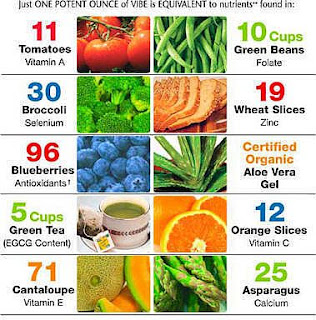
As we talked about dietary minerals in the previous articles , it is worth to talk about vitamins which are essential and very important for the body and one of the principal supplements for the human body and their lack may cause many diseases .
What are Vitamins?
Are a group of organic food substances or nutrients found only in living things, plants and animals. Vitamins were discovered by Dutch physician, Christiaan Eijkmann, who won the 1929 Nobel prize in physiology and medicine. The word vitamin was derived from the term vitamine. The term "vitamine" was first used in 1912 by Dr. Casimir Funk, a Polish biochemist, in reference to substances that were vital to life and contained an amine.
Vitamins are divided into two classes based on their solubility.
The fat-soluble vitamins include vitamin D, vitamin E, vitamin A, and vitamin K.
The water-soluble vitamins are folate (folic acid), vitamin B12, biotin, vitamin B6, niacin, thiamin, riboflavin, pantothenic acid, and vitamin C (ascorbic acid). Fat-soluble vitamins contain only carbon, hydrogen, and oxygen while water-soluble vitamins contain these three elements plus nitrogen and some-times sulfur. Fat-soluble vitamins can be stored in appreciable amounts in the body and the water-soluble vitamins cannot be stored in the body.
Vitamins are necessary in small amounts for normal metabolism and good health. Vitamins and minerals have no calories and are not an energy source, but assist in metabolizing nutrients in food and are invaluable in keeping your body running smoothly. Vitamins make it possible for other nutrients to be digested, absorbed and metabolized by the body. Vitamins are sometimes referred to as the "spark plugs" of our human machine. They are required to do many things and their excess or depletion can lead to acute and chronic disease.
What are Vitamins?
Are a group of organic food substances or nutrients found only in living things, plants and animals. Vitamins were discovered by Dutch physician, Christiaan Eijkmann, who won the 1929 Nobel prize in physiology and medicine. The word vitamin was derived from the term vitamine. The term "vitamine" was first used in 1912 by Dr. Casimir Funk, a Polish biochemist, in reference to substances that were vital to life and contained an amine.
Vitamins are divided into two classes based on their solubility.
The fat-soluble vitamins include vitamin D, vitamin E, vitamin A, and vitamin K.
The water-soluble vitamins are folate (folic acid), vitamin B12, biotin, vitamin B6, niacin, thiamin, riboflavin, pantothenic acid, and vitamin C (ascorbic acid). Fat-soluble vitamins contain only carbon, hydrogen, and oxygen while water-soluble vitamins contain these three elements plus nitrogen and some-times sulfur. Fat-soluble vitamins can be stored in appreciable amounts in the body and the water-soluble vitamins cannot be stored in the body.
Vitamins are necessary in small amounts for normal metabolism and good health. Vitamins and minerals have no calories and are not an energy source, but assist in metabolizing nutrients in food and are invaluable in keeping your body running smoothly. Vitamins make it possible for other nutrients to be digested, absorbed and metabolized by the body. Vitamins are sometimes referred to as the "spark plugs" of our human machine. They are required to do many things and their excess or depletion can lead to acute and chronic disease.
No comments:
Post a Comment